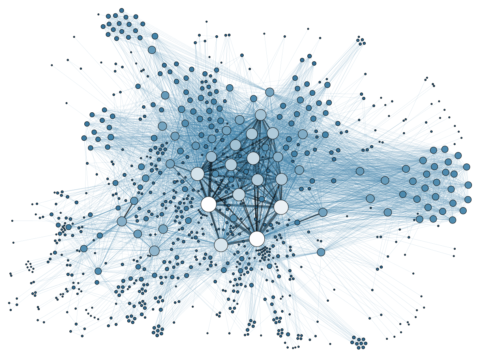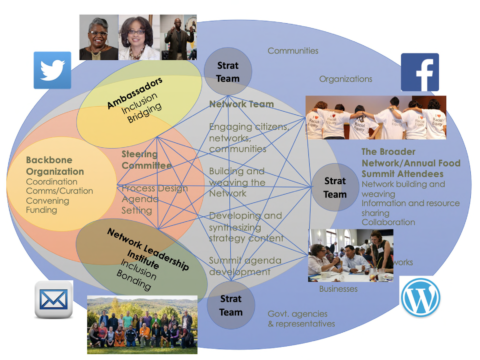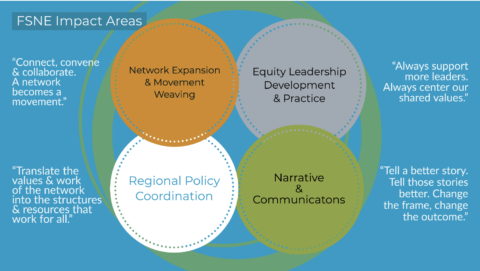Capturing the Complex (and occasionally chaotic) Nature of a Social Change Network
December 31, 2020 Leave a comment
Recently a long-time member of the Food Solutions New England (FNSE) Network Team let us know that they would be transitioning out of their current job and needing to leave the network, at least the core role they have played. FSNE is entering its second, and critical, decade of work, and going through a transition itself as it strives to better weave together a regional food system that is grounded in racial justice, ecological sustainability and democratic principles. It has been quite the journey, 2020 not withstanding.
This person, and real FSNE champion, gave a tremendous gift in their email, laying out how meaningful their experience has been these last several years. In so doing, there is also a wonderful articulation of what being in a network can be all about. Here is a taste of what was so generously offered:
“What stands out to me when looking back is how many aspects of FSNE’s work are challenging: communicating complex concepts; making the most of limited time when such a rich network of folks gets together; putting up with ambiguity when structure and linearity are so comforting and in demand.
But the rewards from the process are on an equal scale with the challenge: building lasting and meaningful relationships with diverse folks from across the food system; being able to think and strategize about that system in entirely new ways; learning new ways to think and to go about work and life. … in offering this to participants, FSNE is very unique among organizations. …
I’m looking forward to what’s coming next, sensing and hoping that the world at large is more ready to support FSNE’s values now, than it was even a year ago.”
So well said! And we know FSNE is not alone.
Even as the network (along with so many others) navigates complexity and disruption and continues to make “progress” around its “impact areas” (including more dense and diverse connectivity; greater advancement of the vision and values; increased regional alignment around a new food narrative; more collaboration on regional food, farm and fisheries policy; more wide-spread commitment to anti-racism in the food system), it can be hard to “see” all of this in the moment. Like so many things in life, it is only in retrospect that we can get a sense of how far we have come. And also like so many things in life, as our transitioning FSNE colleague expressed so beautifully, it is not just what we can most tangibly measure that matters, but also (and perhaps more so) qualitative change and the nature of our experiences (processes, relationships) along the way.

